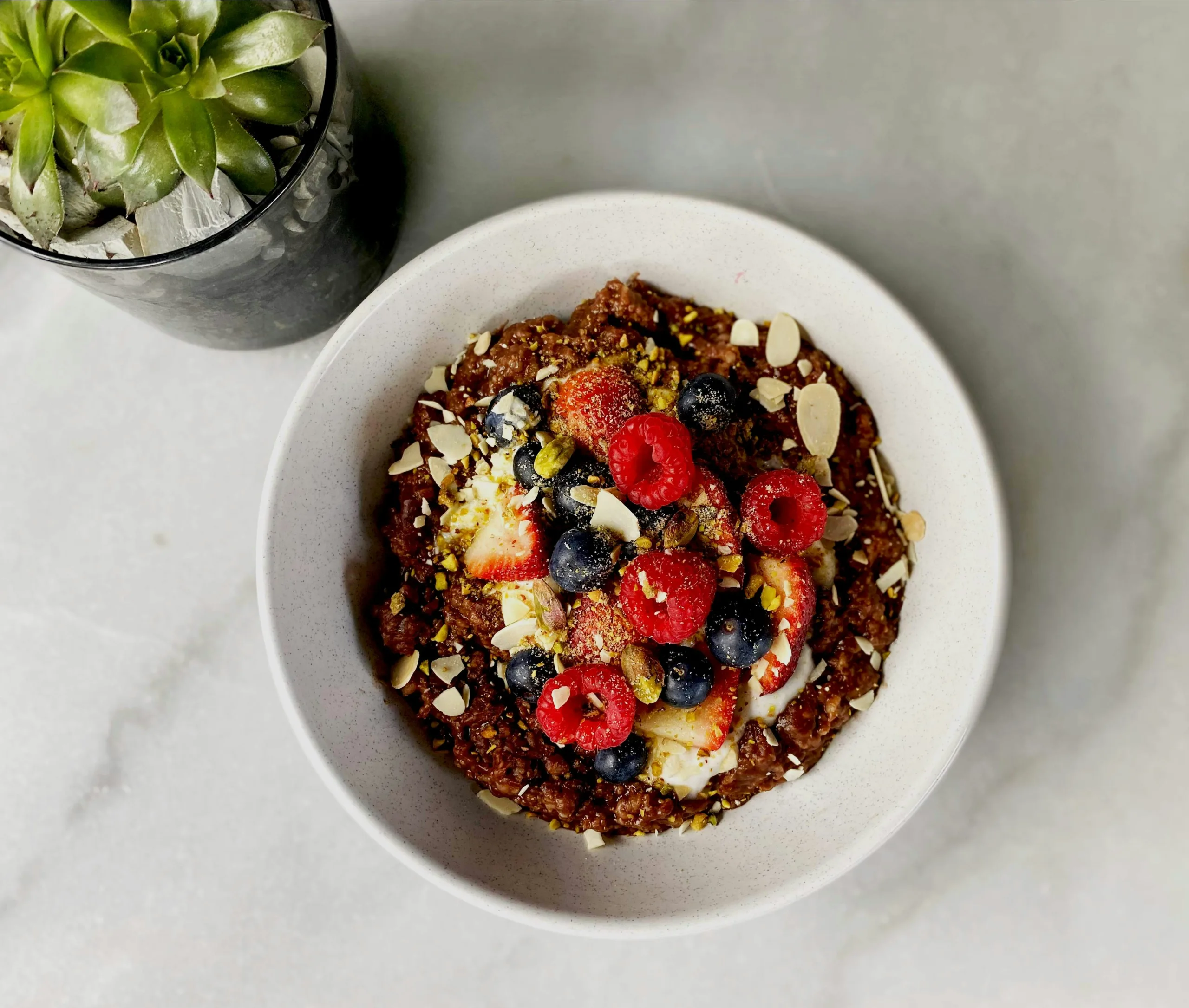Equal. Splenda. Sweet’N Low. Artificial sweeteners are (still) everywhere. While proponents say the non-nutritive (aka zero-calorie) sweeteners help to prevent weight gain and stop sugar spikes, there’s a whole other side to this story. Below, we break down the popular sweetener sucralose including what it is and what the science says about its effects on our health.
What is Sucralose?
Sucralose, popularly known as Splenda, is a high-intensity sweetener that comes in the form of a white powder. And by high-intensity, we mean sucralose is about 600 times sweeter than regular table sugar.
Sucralose is technically made from real sugar (hence Splenda’s misleading original tagline: “made from sugar, so it tastes like sugar”). That said, the lab-made sweetener requires considerable chemical manipulation. In other words, sucralose is definitely a synthetic substance.
Unlike the sugar in your fave chocolate chip cookie, sucralose is not absorbed in the body. We excrete about 85 percent of the sucralose we consume intact. The remaining 15 percent that sticks around has been shown to have no effect on blood sugar (for most people, although some research has shown that it may have an effect on blood sugar in obese people who do not regulary consume it) as it is not broken down for energy.
Where is Sucralose?
Sucralose isn’t only in Splenda. The sweetener is found in processed foods in almost every supermarket aisle. Some foods that may contain sucralose include:
- Diet or diabetic-friendly baked goods
- Diet sodas
- Ice cream and frozen desserts
- Frozen meals
- Chewing gum
- Jams and jellies
- Syrups, condiments (like ketchup)
- Yogurts
What Does the Science Say About Sucralose?
Artificial sweeteners like sucralose have been stirring debate for decades. Various sugar-free additives have been linked to health issues like cancer, GI disturbances, weight gain (yep, you read that right) and increased blood sugar levels.
The cancer concern arose from studies conducted on mice in the 1970s which found that a high consumption of a different artificial sweetener, saccharin (aka Sweet’N Low), was linked with an increased risk of bladder cancer in the animals. The FDA has since debunked the connection and currently approves the use of six different sweeteners — including sucralose — as food additives. While that may sound reassuring, it doesn’t mean all systems are go on non-nutritive sweeteners. After all, the FDA currently allows brands to use countless ingredients in their products that are banned in Europe due to serious safety concerns. So, while sucralose has been deemed acceptable for consumption for the time being, there’s still a lot we don’t know about how it might affect our health long term.
Regarding the gut, some animal studies have found that sucralose may negatively impact the makeup of bacteria in our GI tract and promote inflammation.
Unlike real sugar, artificial sweeteners are touted for their ability to keep off pounds. But, despite being sugar-free, there’s evidence that sweeteners can still mess with blood sugar and insulin levels which can, in turn, drive up the number on the scale. Why? When we eat super sweet foods, it triggers our system to prepare for a rush of sugar or glucose into the bloodstream. As a result, insulin gets ready to go to work—but the expected sugar spike never comes. Cue the metabolic confusion. Experts say this cycle can throw off our body’s blood sugar-regulating mechanisms, promoting insulin resistance over time. Friendly reminder…insulin resistance is associated with weight gain.
Consuming Splenda can also make us want all the dessert all the time. For example, when we regularly sip coffee that’s 600 times sweeter than it’s supposed to be, we become accustomed to ultra sweet flavors. What is the result? Fruit can start to taste bland, and we may have more sugar cravings than ever. Thanks, but no thanks.
Is It Ok to Consume Sucralose?
It’s best to skip it. There’s not much long-term research on the effects of artificial sweeteners on humans (most studies have been done on mice). So far, the evidence suggests that sweeteners like sucralose may stave off weight gain but can have other detrimental effects on our health, including heightened sugar cravings, defects in the gut microbiome, and diminished blood sugar regulation. Instead, healthy adults should opt for the real deal in small doses and when in need of a conscious indulgence.
(photo credit: Shutterstock)






























